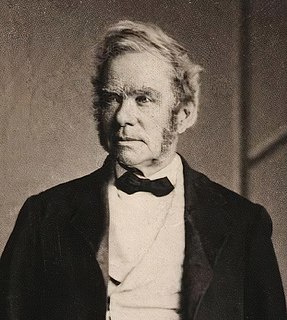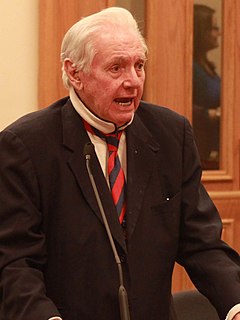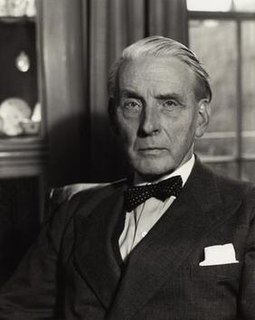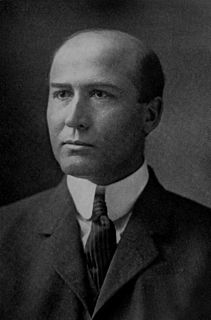A Quote by Alexander Hamilton
[T]hough individual oppression may now and then proceed fro the courts of justice, the general liberty of the people can never be endangered from that quarter . . .
Quote Topics
Related Quotes
It equally proves, that though individual oppression may now and then proceed from the courts of justice, the general liberty of the people can never be endangered from that quarter; I mean so long as the judiciary remains truly distinct from both the legislature and the Executive. For I agree, that "there is no liberty, if the power of judging be not separated from the legislative and executive powers." And it proves, in the last place, that as liberty can have nothing to fear from the judiciary alone, but would have every thing to fear from its union with either of the other departments.
Let us not be unmindful that liberty is power, that the nation blessed with the largest portion of liberty must in proportion to its numbers be the most powerful nation upon earth. Our Constitution professedly rests upon the good sense and attachment of the people. This basis, weak as it may appear, has not yet been found to fail. Always vote for a principle, though you vote alone, and you may cherish the sweet reflection that your vote is never lost. America, in the assembly of nations, has uniformly spoken among them the language of equal liberty, equal justice, and equal rights.
The liberty of the individual is no gift of civilization. It was greatest before there was any civilization, though then, it is true, it had for the most part no value, since the individual was scarcely in a position to defend it. The development of civilization imposes restrictions on it, and justice demands that no one shall escape those restrictions.
First, individual rights cannot be sacrificed for the sake of the general good, and second, the principles of justice that specify these rights cannot be premised on any particular vision of the good life. What justifies the rights is not that they maximize the general welfare or otherwise promote the good, but rather that they comprise a fair framework within which individuals and groups can choose their own values and ends, consistent with a similar liberty for others.
It is not by great acts but by small failures that freedom dies. The sense of justice dies slowly in a people. They grow used to the unthinkable, and sometimes they may look back and even wonder when things changed. They will not find a day or a time or a place. Justice and liberty die quietly, because men first learn to ignore injustice and then no longer recognize it.
One of the greatest disasters that happened to modern civilization was for democracy to inscribe "liberty" on its banners instead of "justice." Because "liberty" was considered the ideal it was not long until some men interpreted it as meaning "freedom from justice"; then when religion and decent government attempted to bring them back to justice, organized into "freedom groups" they protested that their constitutional and natural rights were being violated.
Any individual can contribute its own belief. And our society or even our government are made by the people. The people would have the final voice, but it requires each individual to act. If we don't act, then the result is very clear. So for too long Americans take liberty as granted. We think we are in the safe hand, the democracy and the liberty, which is not true. And it can be even getting much worse than today.
Every improvement in our conceptions of justice, as well as in the machinery for the administration of justice, whereby a closer approximation to exact justice may be secured, will make for social peace, though the mere adjudication of conflicting interests will not remove the conflicts themselves nor their cause. That lies deeper than legislatures or courts can probe.
One by one I have seen obstacles removed, errors corrected, prejudices softened, proscriptions relinquished, and my people advancing in all the elements that go to make up the sum of the general welfare. And I remember that God reigns in eternity, and that whatever delays, whatever disappointments and discouragements may come, truth, justice, liberty and humanity will ultimately prevail.
































